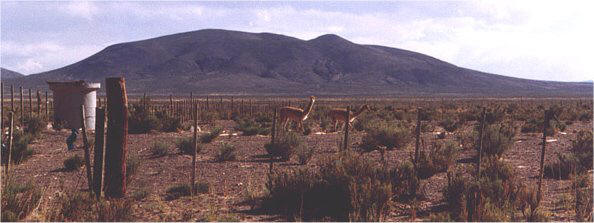|
Economics and Socio-cultural Impacts
International agreements, such as the Vicuna Convention
have at their heart the principle that the prime reason for developing systems
for vicuna fibre harvesting is to provide much needed extra income for the
campesino communities of the altiplano. A positive feedback from this return of
benefits from wildlife management is the enhancement of the level of protection
that the same communities will give to the herds of vicuna that are under their
management. A number of systems have been tried in different parts of the
altiplano in the last ten years, but it is not yet clear which of these offers
the best solution to meet the combined objectives of sustainability and
improvements in rural incomes.
The research team uses economic and sociological analysis
methodologies to establish an essential framework of reliable data on
alternative management systems. Ethical and equitable solutions to the issues of
marketing and distribution of benefits need to be found, and policies formulated
that will deliver these solutions. Stakeholder analysis will enable
disaggregation of results to allow impacts of different scenarios to be assessed
in relation to different interest groups, such as indigenous peoples, government
agencies, textile companies, farmers etc. The approach will generate both
qualitative, holistic, information as well as quantitative data. The project
involves close collaboration with a leading European SME manufacturer of quality
textiles so that close relevance of market analysis to industry requirements in
ensured.
Quantitative data will feed into a modelling approach,
which will be used to analyse system scenarios and test policy options.
|
 |

Resources
Political economy
Argentina
Peru |


